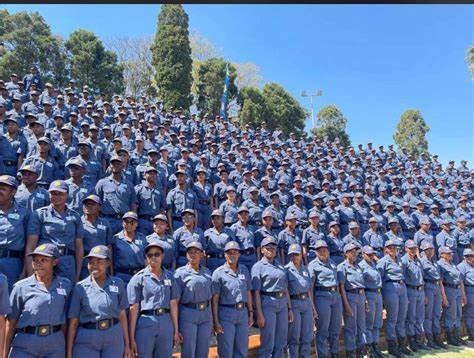How to Prepare and What to Expect in 2025
After passing the screening, psychometric testing, and physical fitness assessment, the next critical step in the SAPS Basic Police Development Learning Programme (BPDLP) application process is the interview.
This interview is designed to assess your attitude, communication skills, discipline, and readiness for a career in law enforcement.
In this blog post, we explain how the SAPS interview process works, what types of questions are asked, and how to prepare to give your best performance.
🕵️♂️ Why the SAPS Interview Matters
The interview gives SAPS officials a chance to see if you:
- Understand the responsibilities of being a police officer
- Can think clearly under pressure
- Are honest, disciplined, and respectful
- Are ready to commit to the training and the lifestyle
📋 What to Expect During the SAPS Interview
The interview usually takes place at a local police station or SAPS training academy. Here’s what to expect:
1. ✅ Interview Invitation
If you pass the earlier stages, SAPS will contact you by SMS, phone call, or email with your interview date and location.
⚠️ Don’t ignore this message — missing your interview could disqualify you.
2. 👥 One-on-One or Panel Interview
You may be interviewed by:
- A senior SAPS officer
- A recruitment panel
- In some cases, a psychologist or HR official
3. 📌 Common SAPS Interview Questions
Here are examples of real questions asked during the BPDLP interview:
- Why do you want to join SAPS?
- What do you understand about the role of a police officer?
- How would you handle a difficult situation with a colleague or member of the public?
- What does discipline mean to you?
- Have you ever been in a leadership role?
- How would you react if you saw another officer breaking the law?
💡 Tip: Practice your answers out loud. Be honest, confident, and respectful in your tone.
4. 📎 Documents to Bring to the Interview
- Original ID and certified copy
- Matric certificate and other qualifications
- CV (if requested)
- Application reference number or invitation letter
- Any documents requested in your interview SMS/email
🧥 Dress professionally: wear a shirt, neat pants/skirt, and closed shoes. No jeans, caps, or T-shirts.
🔑 How to Prepare for the SAPS Interview
✔️ Research SAPS Core Values
Know the SAPS values: Integrity, Respect, Accountability, Honesty, and Service Excellence. They may ask about them directly.
✔️ Understand the BPDLP Programme
Be ready to explain what you know about the Basic Police Development Learning Programme (training duration, purpose, goals).
✔️ Practice Common Questions
Rehearse your answers with a friend or in front of a mirror. Focus on clear and confident communication.
✔️ Stay Calm and Polite
Avoid slang, mumbling, or arguing. Greet the interviewers respectfully and thank them at the end.
🧠 Bonus Tips to Impress in the Interview
- Be on time — arrive at least 30 minutes early
- Bring all your documents in a neat folder
- Switch off your phone before entering
- Make eye contact and sit upright
- Always tell the truth — SAPS checks everything
❌ Reasons for Interview Rejection
- Poor communication or attitude
- Dishonesty or lack of preparation
- Disrespectful behavior or dress code violation
- Unclear understanding of the SAPS role
- Lack of motivation or professionalism
🏁 Final Words of Advice
The SAPS BPDLP interview could be your final step toward a meaningful career in law enforcement. Take it seriously, prepare well, and show them your potential to serve and protect.
🗣️ “The interview is your voice — let it speak for your discipline, honesty, and commitment.”








Leave a Reply